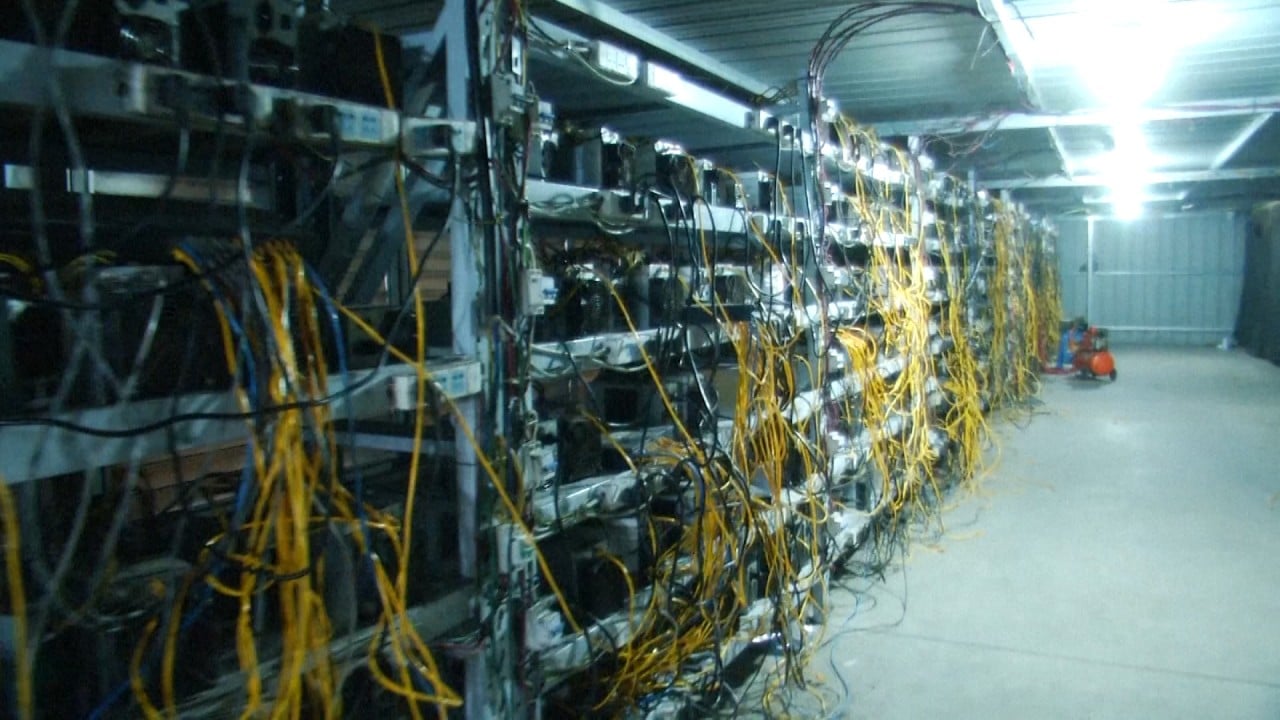
Bitcoin mining in northern Chinese province to be halted amid energy-saving push
- Bitcoin mining requires huge amounts of computing power and uses large amounts of energy, but China has pledged to achieve carbon neutrality in 2060
- Inner Mongolia was the only one of 30 areas under Beijing’s energy consumption and energy intensity review that failed to meet the targets in 2019
China’s top energy consuming province plans to suspend all new and existing bitcoin mining projects before the end of April, as Inner Mongolia faces mounting pressure to meet its energy-saving targets.
Bitcoin mining requires huge amounts of computing power and uses large amounts of energy, with operations attracted to areas like Inner Mongolia, Sichuan and Xinjiang due to low electricity prices.
But Inner Mongolia was the only one of 30 areas under Beijing’s energy consumption and energy intensity review that failed to meet the targets in 2019, drawing criticism from the central government in September.
The plan, released last week by Inner Mongolia’s industry and energy departments, is subject to changes as the agencies are still soliciting public opinion until Wednesday,
But it is widely believed to be a routine procedure ahead of the official announcement, which is highly likely to be implemented given the country’s commitment to fighting pollution and reducing its carbon emissions.
The efforts to curb all high energy-consuming industries will certainly pour cold water over the rising enthusiasm for bitcoin miners, which have been spurred by soaring prices, with the cryptocurrency currently trading at over US$47,000, compared to over US$8,500 a year ago.
Trading cryptocurrencies has been banned in China since 2019 over fears they could pose a threat to financial markets, but bitcoin mining is permitted.
In the long term, it could erode [China’s] ability to control the bitcoin network
“Bitcoin has become an international asset. Such one-size-fits-all measures may lead to short-term fluctuations of computing power,” said James Kuo, a blockchain professional in Shanghai. “In the long term, it could erode [China’s] ability to control the bitcoin network.”
China’s state planner, the National Development and Reform Commission, has not yet released the new energy-saving targets for 2021-25, but the regional department has proposed reducing Inner Mongolia’s energy intensity by 3 per cent for 2021 from 2020 levels while also capping its energy consumption growth at 1.9 per cent.

01:07
Chinese police seize 4,000 bitcoin-mining computers that illegally tapped US$3 million worth of electricity
“[Inner Mongolia] will tighten its energy control measures and bear the targets throughout all economic and social aspects,” said the draft document, adding it will strictly curb blind expansion at firms which consume a lot of energy.
Between 2016-19, energy intensity in Inner Mongolia rose by 9.5 per cent, while overall energy consumption grew by 65.62 million tonnes – 1.84 times of the five-year target.
The region has vowed to increase the share of renewable energy in its power portfolio, aiming to install more than 100 gigawatts of renewable generation capacity by 2025.
Additional reporting by Reuters

